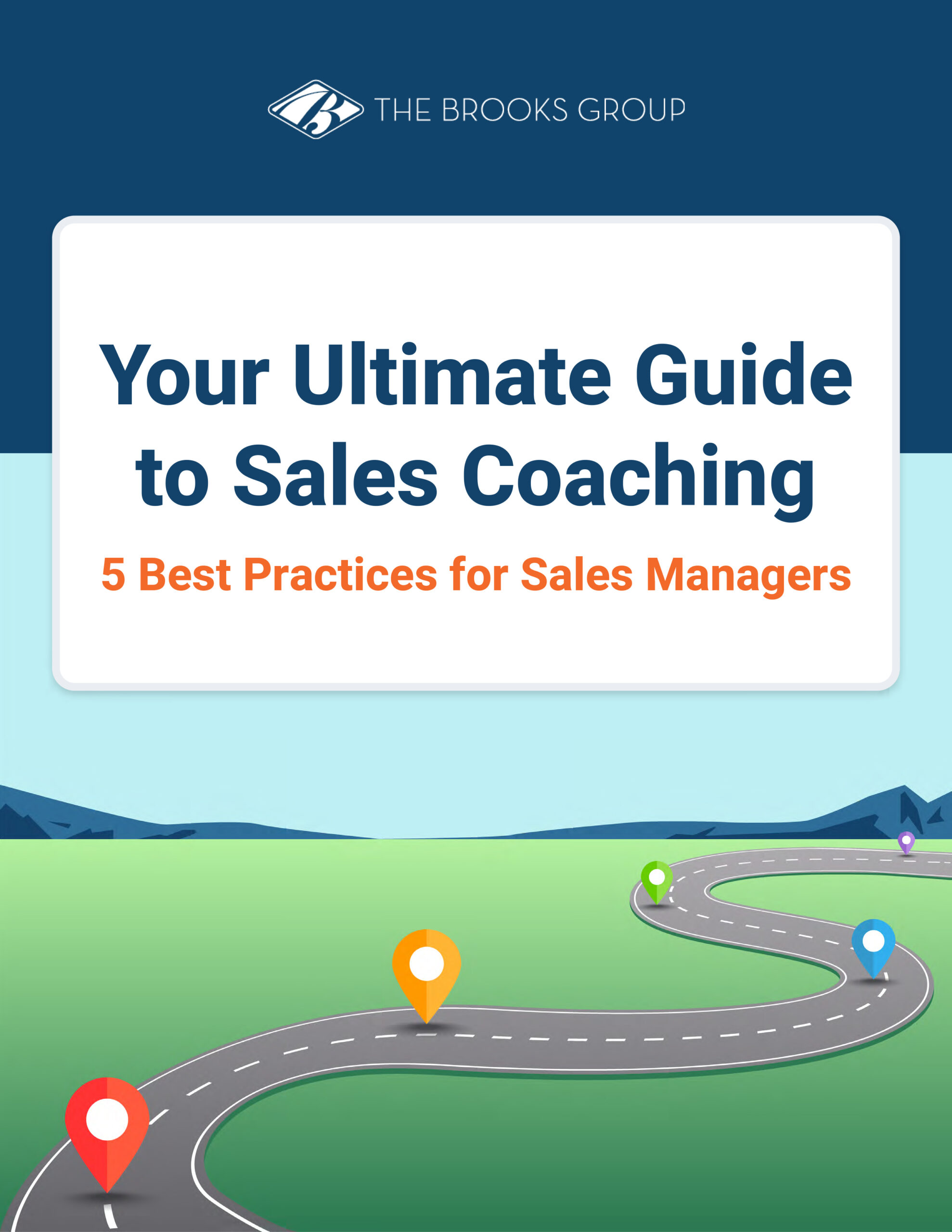Sales success hinges not only on strategy and skill but also on continuous improvement and development. This is where effective sales coaching comes in. Imagine a scenario where every member of your sales team is equipped with the tools, guidance, and support needed to reach their full potential. The result? Increased revenue, enhanced sales performance, and a thriving sales culture.
Watch On Demand: Sales Coaching 101: Strategies for Highly Effective Coaching Conversations
Research consistently underscores the significance of coaching to sales team performance. According to recent findings from The Brooks Group, successful teams that consistently meet or exceed revenue targets attribute a significant portion of their success to sales coaching programs.
In fact, 58% of high-performing teams leverage coaching as a cornerstone of their sales training and development strategy, compared to only 44% of underperforming teams.
But what exactly makes coaching such a game-changer? And how can sales leaders harness its power to cultivate a high-performing team?
In our recent webinar, Sales Coaching 101: Strategies for Highly Effective Coaching Conversations, The Brooks Group’s Michelle Richardson, VP, Sales Performance Research, and Dan Markin, VP, Sales Strategy and Consulting, discussed the importance of effective sales coaching and shared strategies for highly productive coaching conversations.
“Coaching is something that can be developed. It’s important that we refine the craft to make sure we’re not only having coaching conversations, but good sales coaching conversations.” — Dan Markin, VP, Sales Strategy and Consulting, The Brooks Group
3 Types of Sales Coaching Conversations
Richardson and Markin explored three different types of sales coaching conversations: pipeline reviews, opportunity coaching, and skills/performance coaching. While pipeline reviews and deal coaching are essential, they agree the emphasis should be on forward-thinking performance coaching to drive long-term development.
“We tend to focus on lagging indicators: things that have already happened. But if we really want to lead and be transformative in this competitive environment, we’ve got to start thinking about leading indicators and sales behaviors—not only accurately diagnosing them but leveraging them for more success in the future,” said Markin.
He continued, “How much time do you spend thinking about what you sold last month and what you sold last quarter versus what you could be doing to affect results next month or next quarter?”
5 Effective Sales Coaching Strategies
To structure effective sales coaching sessions, Markin stressed the importance of asking questions and listening rather than telling. He shared five strategies for effective sales coaching techniques.
1. Ask, don’t tell.
Sales leaders tend to jump into telling mode (“Here’s what you need to do”) rather than ask open-ended questions. Use the sales principle of going three-deep with customers. Ask deeper questions and then listen.
- How do you think that went?
- What do you think went well?
- How could you improve it to make it better?
- How might you solve this?
2. Adapt your style.
Sales leaders must understand their style—how they communicate and how they come across—as well as that of their sellers. Use personal sales assessments to know yourself and be able to adapt to someone with a different style.
3. Co-create the solution.
Sales leaders help open doors and remove obstacles, but it’s still incumbent upon the seller to walk through them. Involve your sales professionals in their development plan. Ask them what they will do to move forward and what they need from you.
4. Establish expectations and next steps.
Sales leaders must follow up after coaching conversations to set expectations for performance and next steps. Establishing clear objectives ensures accountability.
5. Find the right balance.
Sales leaders should avoid “gotcha” moments and surprising sellers. These don’t set the seller up for success. While you want to see sellers in their natural environment, give them the opportunity to showcase their skills. Find the right balance between letting people be prepared and understanding that you want to see their territories and markets.
“It’s important to recognize there are many ways to get a good result. You want to embrace the differences and be results focused. Have a collaborative conversation about the pros and cons of different solutions,” said Markin.
Overcoming Barriers to Effective Sales Coaching Conversations
Effective sales coaching is an essential investment in driving long-term team success. But it’s not easy to do well. Markin and Richardson also covered several common factors that get in the way of effective coaching conversations.
Overfocus on Pipeline
Time spent on pipeline review is important but doesn’t take the place of actual coaching. Balance deal and opportunity reporting with skills development.
Blind Spots
Old habits and assumptions may get in the way of understanding a situation or resolving an issue. Look for weak points and keep an open mind for more effective ways of coaching.
Lack of Skills
The ability to close deals doesn’t always translate to the ability to coach. Develop your coaching skills with sales leadership skills training.
Fear of Conflict
Aversion to disagreement creates an environment in which people aren’t as honest as they need to be. Acknowledge coaching conversations that make you feel uneasy or anxious before addressing the coaching issue.
Watch On Demand: Sales Coaching 101: Strategies for Highly Effective Coaching Conversations
5 Recommendations for Sales Coaches
Throughout the webinar, Markin and Richardson emphasized the significance of creating an environment that fosters accountability and continuous improvement. Here are five recommendations for sales leaders to enhance their coaching conversations.
1. Balance pipeline reviews, deal coaching, and performance coaching.
Focus on forward-thinking performance coaching rather than just pipeline reviews or deal coaching. This approach encourages long-term development and drives sustained improvement in sales team performance.
2. Address barriers to coaching.
Identify and address common barriers to effective coaching, such as an overemphasis on pipeline reviews, fear of conflict, or lack of coaching skills.
3. Tailor coaching based on seller behavior and results.
Instead of simply telling sellers what to do, ask effective sales coaching questions and actively listen to their responses. Tailor your communication style to match the seller’s preferences, and involve them in co-creating solutions—fostering engagement and ownership of goals.
4. Establish accountability through coaching follow-up.
Follow-up is vital to reinforce coaching and track progress. Establish clear procedures and document growth, good behaviors, and developmental areas. Be transparent, adapt follow-up to sellers’ personality and needs, and deliver information in a way that’s conducive to their success.
5. Leverage peer coaching for seller development.
Coaching does not always have to be only the manager’s responsibility. Peer coaching is a great way to scale your efforts. Give your best players opportunities to “force multiply” your resources. Ask them to demonstrate skills and best practices in one-on-one and/or team meetings. This shows that you recognize top performers’ value, provides a resource to other team members, creates dialogue, and opens channels of communication.
By implementing these recommendations, sales leaders can foster a culture of coaching and a growth mindset, ultimately driving long-term success for their sales teams.
Learn More
Find out how our Coaching to IMPACT Program can improve coaching and maximize your sales training ROI.
White Paper Download
Your Ultimate Guide to Sales Coaching
Effective sales coaching can have a huge impact on your business, especially in it’s contribution to revenue. Unfortunately, many sales leaders may be aware that their managers need to spend more time coaching, but formal programs tend to be poorly executed or non-existent.
Download this ultimate guide to enhance your coaching practices by focusing on high-impact sales coaching activities.





